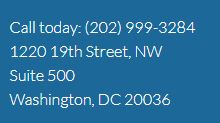Fraud is a word that gets thrown around a lot. We hear it from angry clients when a business transaction doesn’t turn out as expected, or when a purchase was less than satisfactory, or when a debt goes unpaid.
Fraud is an elevated form of wrongdoing. It’s possible you may have a breach of contract case against someone, and yet not a fraud case – even when emotions are running high and your gut tells you that something is a “fraud” in the colloquial sense. It’s also possible that you do indeed have a cause of action for fraud.
As a business organization lawyer Memphis, TN trusts time and time again, we can help you sort through your emotions and bad feelings you may be having, and help you identify which legal claims you will be able to prove.
Elements of Fraud
Actions for fraud contain four elements:
(1) A person intentionally misrepresents a material fact;
(2) The misrepresentation is about a past or existing fact (or, in the case of promissory fraud, it would involve a promise of future action with no present intent to perform);
(3) That person knows that the representation is false,
(4) Someone suffers an injury (i.e., incurs damages or is harmed in some way) because of reasonably relying on the misrepresentation.
Nondisclosure
Nondisclosure of a fact (i.e, withholding pertinent information) constitutes fraud if a person has a duty to disclose the fact, and when that fact is material.
Specific Pleading Rules
There is a heightened standard of pleading involved with lawsuits for fraud. If you file a lawsuit for fraud, you must set forth your cause of action with particularity. This means you must plead your fraud case, and the above referenced elements, in detail. A business litigation lawyer understands these specific pleading rules and will help you state your claim correctly.  Thanks to our friends and contributors at Wiseman Bray PLLC who have significant experience in business litigation.
Thanks to our friends and contributors at Wiseman Bray PLLC who have significant experience in business litigation.
Resources
- Product Defect Lawyer Baltimore MD
- Medical Malpractice Lawyer Baltimore MD
- Asbestos Lawyer Baltimore MD
- Truck Accident Lawyer Baltimore MD
- Three Things Needed to Prove a Wrongful Death Claim
- Personal Injury Lawyer Baltimore MD
- Brakes and Trucking Accidents in VA
- Washington DC Auto Accident Lawyers
- Washington DC Truck Accident Lawyers
- Washington DC Truck Accident Lawyer
- Washington DC Motorcycle Accident Lawyers
- Washington DC Pedestrian Accident Lawyers
- Car Accident Attorney DC
- Truck Accident Attorney Washington DC
- Truck Accident Lawyer Washington DC
Additional Resources
- Trucking Accident Lawyer Baltimore MD
- Bus Accident Lawyer Baltimore MD
- Uber Accident Lawyer Baltimore MD
- Slip and Fall Lawyer Baltimore MD
- Motorcycle Accident Lawyer Baltimore MD
- Auto Accident Lawyer Baltimore MD
- Washington DC Car Accident Lawyers
- PG County Car Accident Lawyer
- Elizabeth NJ DUI Attorney
- Pedestrian Accident Lawyer DC
- Washington DC Trucking Accident Lawyer
- Trucking Accident Attorney In Washington DC
- Trucking Accident Lawyer Washington DC
- Washington DC Trucking Accident Lawyer


